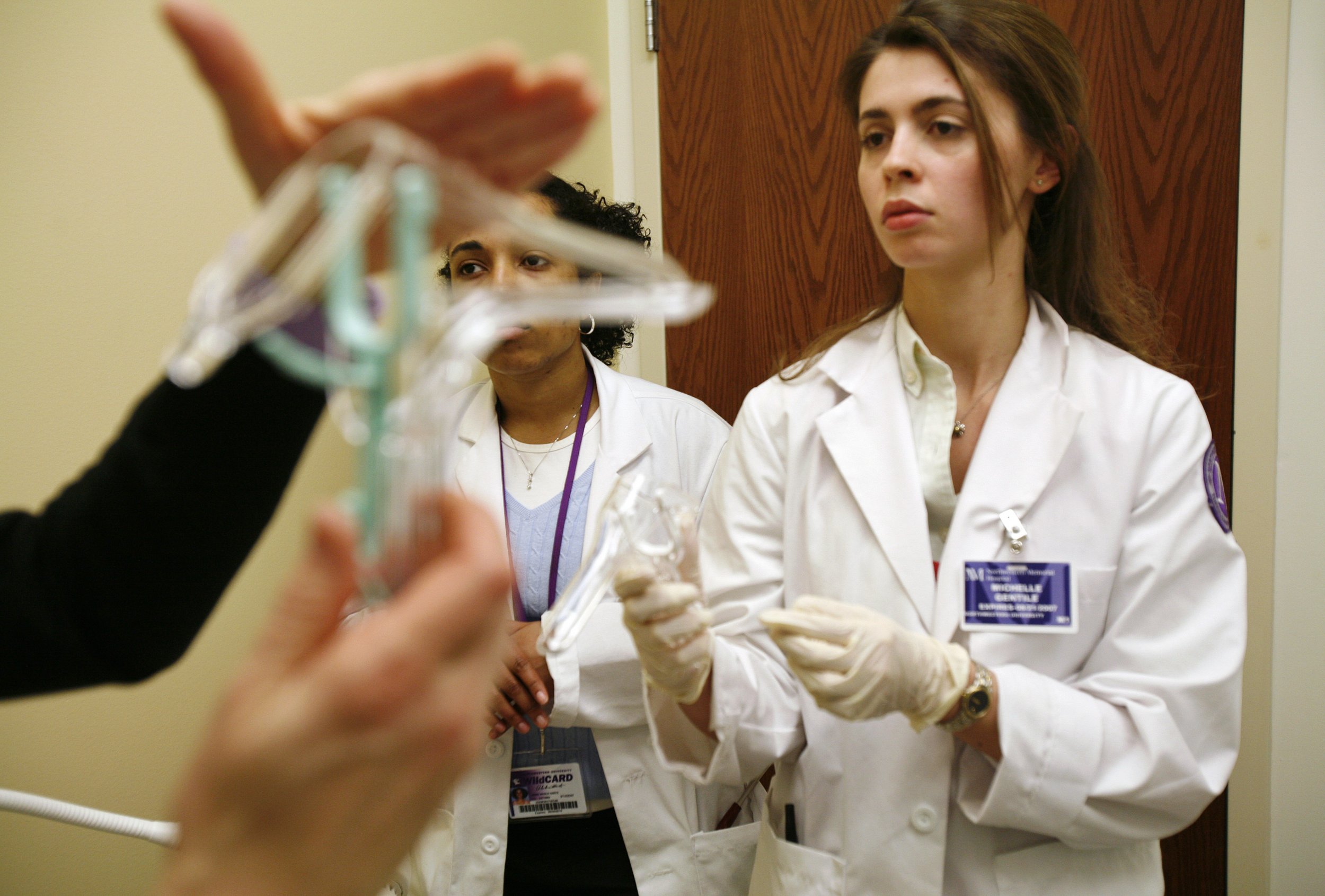
For women between the ages of 30 and 65 who are at risk of contracting human papillomavirus, a promising test might be an alternative to the dreaded Pap smear.
Approved by the U.S. Food and Drug Administration in 2014, the HPV test is a relatively new alternative to Pap smears. The test requires a simple swab of vaginal and cervical secretions, as opposed to collecting cells from the cervix. However, the U.S. Preventive Services Task Force, which creates guidelines for the diseases people should be screened for and when, still recommends Pap smears every three years for most women with uteruses betwen the ages of 30 and 65, NPR reports.
A new study published in the Journal of the American Medical Association could change that recommendation. In turn, gynecologists might change which tests they recommend for their patients.
The study documented the results of a randomized clinical trial comparing Pap smears with the use of HPV tests. The HPV test is more popular in Canada, and the trial used data from 19,000 British Columbians who consented to having their anonymized data collected and compared.
The researchers compared people who had the HPV test, the Pap smear and both, and analyzed their impact over four years. They found that the HPV test had several benefits over the Pap smear. The test is sensitive enough that the results are useful for a longer period of time, and participants didn't need to be retested for up to five years. It's also less invasive than a Pap smear.
With the results of such a large study, scientists can better understand the long-term accuracy of HPV test results. According to the study, the HPV test is accurate enough, producing only a few false positives, in which a test identifies a disease that isn't actually there.
False positives pose a considerable problem to doctors and patients, as they often result in painful, invasive further testing, unnecessary treatment and fear. An ideal test would not overlook actual disease nor falsely identify one.
Having HPV in your 20s is fairly common, and isn't likely to lead to cervical cancer. But if abnormal cells persist past 30, doctors might suggest further tests and treatment. If the guidelines change regarding the Pap or HPV test, doctors will still most likely recommend that sexually active patients younger than 30 stick with the Pap smear.
Uncommon Knowledge
Newsweek is committed to challenging conventional wisdom and finding connections in the search for common ground.
Newsweek is committed to challenging conventional wisdom and finding connections in the search for common ground.
About the writer
Kristin is a science journalist in New York who has lived in DC, Boston, LA, and the SF Bay Area. ... Read more
To read how Newsweek uses AI as a newsroom tool, Click here.






